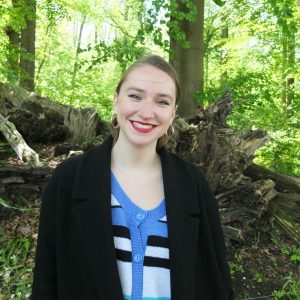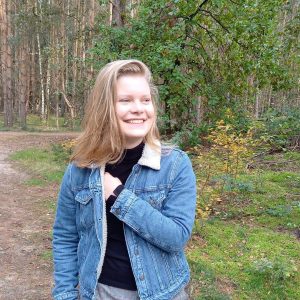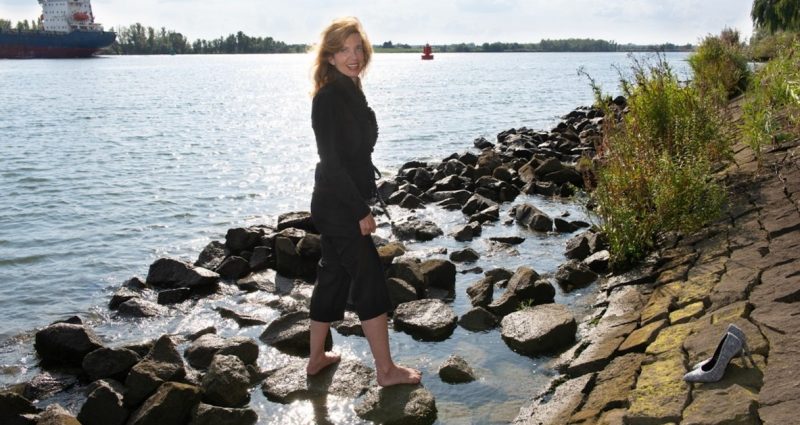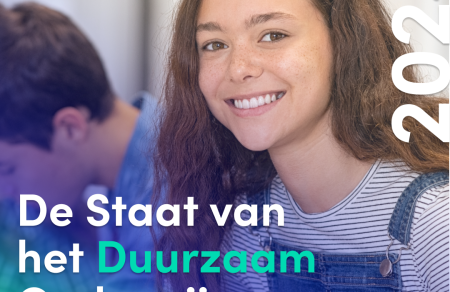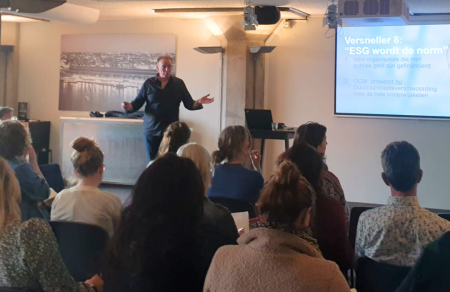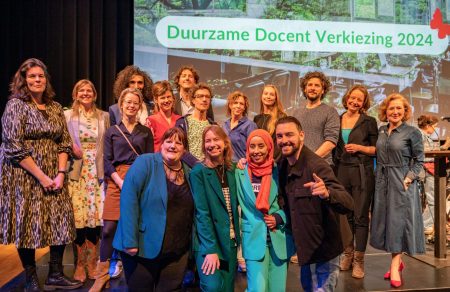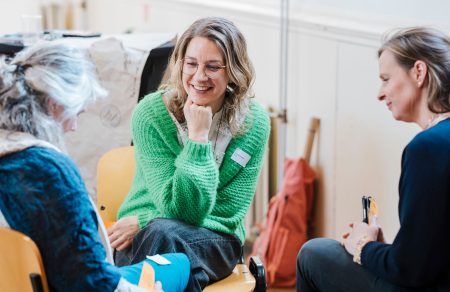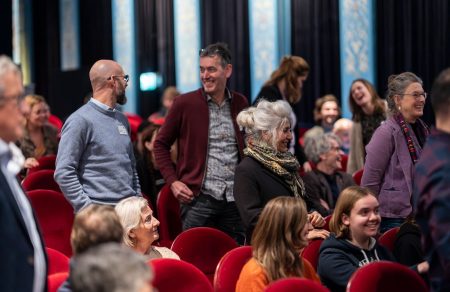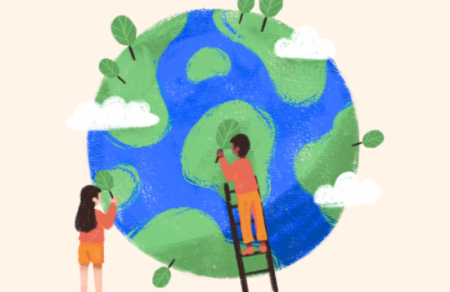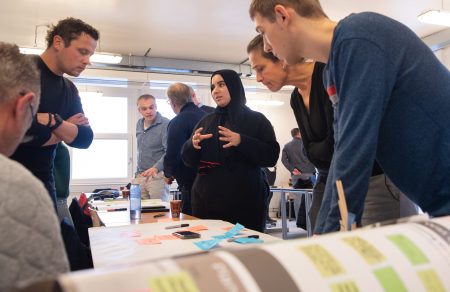From thesis to case study
"When I noticed this disappointment in myself and students about the theses, I went to the college and asked them: can we do something about this together? Eventually I got the space to start TIP circular (Talent Innovation Pool) last year. There were already initiatives around TIP but TIP circular did not exist, I was allowed to shape it as I saw fit.
The premise of a TIP community is that students and young professionals work together on a case study. In doing so, students broaden their knowledge in the field of the circular economy. Last school year, the students started with a research question from Constructif, a nationwide maintenance company. They formulated the research question as follows: investigate how a modular and circular system for making porch houses more sustainable can contribute to biodiversity. Students worked out this question in twenty weeks' time. A professional from Constructif accompanied them. At the same time, a number of other companies were on board who wanted to help bring this case to a successful conclusion. During the research, we offered master classes to the students, given by experts from science, business or an experience expert. This was all to provide the youth with input and get them out of their comfort zone. A case study is very inspiring for most but what matters most is that they give it their own identity, that is actually the most important message.
The final result was that they received appreciation from the client in addition to a wonderful grade. They were so enthusiastic about the result that what was developed will be implemented in 2023, which is of course the dream.
Working with the business community
Normally they are learning and working companies where students do internships. We obviously look at the ambition level of a company, but otherwise I am very free. This school year, for the first time, we have a lecturer associated with TIP so that we can also validate the scientific part. This also makes it very interesting for companies to join.
For example, one group is now working with the Ministry of Defense. They are researching the feasibility of printing the base camp for troops during peacekeeping missions. Now everything is still flown in or shipped, for example the tents or containers that are furnished as accommodation. In the ideal situation, a 3D printer would be used for this and the materials would be available locally. What is interesting in this case is that we are not talking to the already established order, which are generally large companies that are somewhat less agile. We have chosen to connect start-ups and scale-ups to TIP in order to increase the innovative power.
I myself am a kind of watchdog in this, ensuring that knowledge continues to develop. I am constantly looking at the process in the outside world and its influence on us. It is interesting for companies in this labor market to present themselves to young people, and vice versa of course. I really enjoy bringing these parties closer together. Because companies contribute to this, we can shape the education together in a different way and make it more attuned to the needs of the business community.
"Circular skills are already so obvious to students, while we're only now really calling attention to them in the business world"
Student Development
The mornings are really about gaining and sharing knowledge. In the afternoon the program is about soft skills, mainly personal development. I have seen in practice that students develop exceptionally quickly. They rise above themselves, dare to think critically and ask questions. In fact, they don't even realize that they are also developing their circular skills. It is so obvious to them, while we in the business world are only now really calling attention to it.
Ambition
What I would like is for the TIP rounds to be even more about inspiration so that the students and young professionals get the most out of them. For now, it is especially important to make the format stick. In this we also need to look at the trends and development in circular building. This whole process is an interactive one. For example, on the first day I cannot say who will be a guest in week sixteen. That partly depends on the knowledge needs of students and everything that happens outside of us. I hope that with all of this, we can bring more meaning to the student learning journey."
